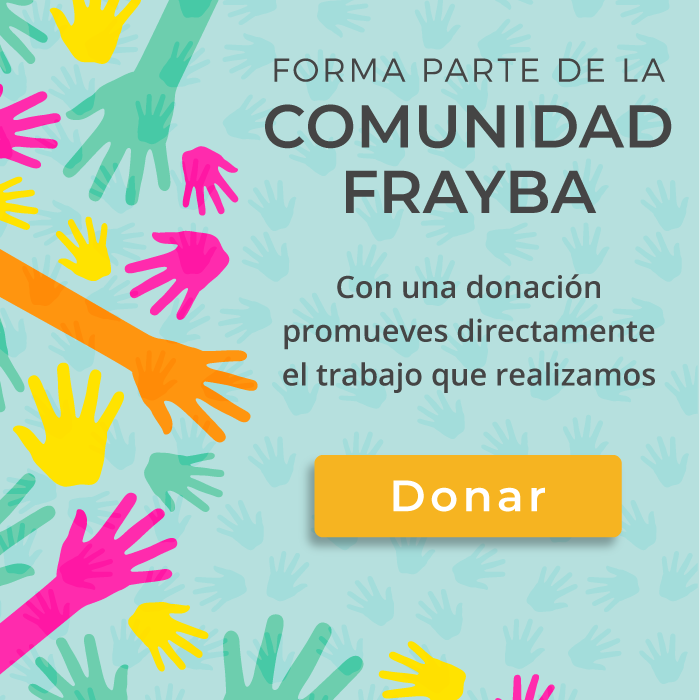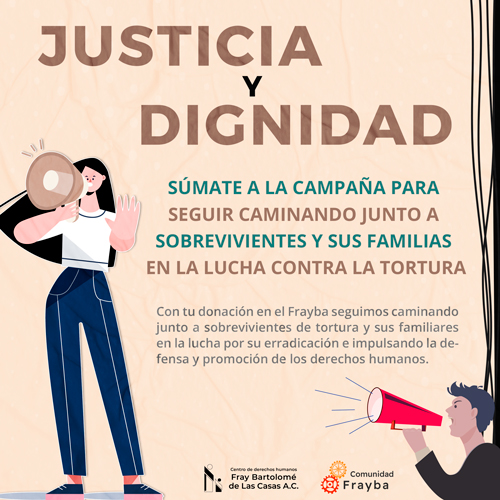Human rights organisations unite for a better world without torture
Statement by the OMCT Working Groups on Migrants, Women and Indigenous peoples on the International Day in Support of Victims/survivors of Torture
Manila, Mexico, Lomé and Geneva, 26 June 2020 (OMCT) - As the world observes the International Day in Support of Victims of Torture, the World Organisation Against Torture (OMCT) working groups on specifically vulnerable people strongly call for a better world where torture does not tear people’s lives apart.Torture and other forms of ill-treatment are the most abhorrent violations of human rights, human integrity and human dignity. Everywhere, during armed conflicts as well as in times of peace, torture is frequent but often invisible. Far too many victims remain unacknowledged. It is a structural problem, resulting from historical and persistent economic and social relations that have marginalized large sectors of the population. It thrives on racial and patriarchal structures and targets highly vulnerable groups of people such as migrants, indigenous communities, and women and girls.
These are the people we want to give a voice to today. They may be past or current victims of torture, but they are all survivors. Some may have healed; most will be traumatised for life. They may be community leaders, young people seeking opportunities in new countries, environmental defenders, asylum seekers, women deprived of liberty for an obstetric emergency… people like you and me. If we can hear and understand them, we can all make a difference, together, and build a world without torture, every day, through our actions and choices.
“In my country, Guatemala, evictions in indigenous communities are constant and part of historical dispossession practices. Families have been evicted from their homes, from their lands, which historically belong to them, because a certain company or landowner is going to implement a monoculture or hydroelectric project”, explained Juana Sales, a member of the Working Group on Indigenous Peoples and Torture in Latin America. “Not only do people lose their homes, many lose their lives, as evictions are carried out with a lot of violence, including sexual violence”. Emma Bolshia, another member of the groups, added: “In Bolivia, the collective and individual stigmatization of indigenous peoples is very worrying. I remember one case in Sucre, where young indigenous people working in the fields were taken to the main square half-naked in the middle of a mob that insulted them, beat them and spat on them. Such abuse is extremely destructive because the cultural fabric has great meaning at both the individual and the community level. The effects of torture in the communities are also brutal, destroying social cohesion and leaving a lasting impact on the memory of the community and on future generations".
They deserve to be heard and to live in a world without torture!
“My country, Niger is at a crossroads of migration routes in Africa. It is a major point of passage for thousands of migrants travelling from sub-Saharan Africa towards the Maghreb and Europe, using unsafe and irregular pathways due to a restrictive and obstructive migration law that was adopted in 2015 with the support of the European Union”, said Yahaya Badamassi, a member of the Working group on Migration and Torture. “In the Sahel, where I have worked over the last years, I have seen people forced to escape the ongoing violence in countries like Mali, Burkina Faso and Chad, with their families, and unfortunately ending up as victims of human trafficking, slavery, torture and other ill-treatment at the hands of both State officials and non-State actors throughout their journey. This is mainly the case in Libya, where they experience abusive arrests and incommunicado detentions in overcrowded and inhuman prisons”, added Aminata Dieye, the Chairperson of the Migration and Torture working group. “In most of these cases, migrants victims of torture, including women and children, lack or are denied access to rehabilitation services and psychological support when they reach their destination or when they are returned to their country of origin”, said Esther Nabwire, a member of the working group in Uganda.
They deserve to be heard and to live in a world without torture!
“Women and girls continue to face high risks of becoming the victims of torture around the world, including in Asia. This violence often takes a sexual form, but not only. Domestic violence, harmful practices including forced and early marriage and so-called honour crimes, violations of reproductive rights, poor detention conditions for women and girls, trafficking and exploitation may also amount to torture. Enacting new laws intended to protect women and girls from torture is not enough when there is no adequate implementation or effective structure in place to enforce them”, described Cristina Sevilla, from the Working group on Violence against Women and Torture. Young children are also particularly affected by torture in the region. In the Philippines, for instance, children in detention are subject to abuse, ill-treatment and torture, in detention centres so overcrowded that children have to take turns to sleep on the floor because of the lack of space. As recently as last March, some children were put in cages, and even in a coffin, for violating the country’s curfew.
They deserve to be heard and to live in a world without torture!
Since last year, 25 organisations from various countries across Africa, Asia and Latin America have come together in three autonomous groups and agreed on a joint way forward to map out and analyse the root causes, patterns and multifaceted effects of torture and other ill-treatment on migrants, women and girls, and on indigenous peoples, respectively. This initiative was spearheaded by the World Organisation Against Torture (OMCT) and its partner members Centro de Derechos Humanos Fray Bartolomé de Las Casas, A. C. (Frayba) of Mexico, the Collectif des Associations Contre l’Impunité au Togo (CACIT) and the Philippine Alliance of Human Rights Advocates (PAHRA).
“Redressing acts of torture that happen everywhere and every day in the world is a moral obligation on the global level”, said Carin Benninger-Budel, OMCT Programme Director. “The victims deserve to hope for truth and justice. We must keep their hope alive.”
The following organisations are members of the Working Groups on Migrants (Africa) Women (Asia) and Indigenous Peoples (Latin America):
Africa
Ligue Tchadienne DH (réseau), Tchad
Forum Tunisien pour les Droits Économiques et Sociaux (FTDES), Tunisia
Independent Medico-Legal Unit (IMLU), Kenya
African Centre for Treatment and Rehabilitation of Torture Victims, Uganda
Association Malienne pour la Survie au Sahel (AMSS) /Mali
Alternative Espaces Citoyens, Niger
Réseau Migration développement (REMIDEV), Senegal
Africa Centre for Justice and Peace Studies (ACJPS), Sudan
Asociación Pro Derechos Humanos de España (APDHE), Spain
Antigone, Italy
Asia
Advocacy Forum, Nepal
Association of Women for Awareness and Motivation (AWAM) and National Commission for Justice and Peace (NCJP), Pakistan
Banglar Manabadhikar Suaksha Mancha (MASUM), India
Cambodian Center for Human Rights (CCHR), Cambodia
Civil Society & Human Rights Network (CSHRN), Afghanistan
Naripokkho, Bangladesh
Philippine Alliance of Human Rights Advocates (PAHRA), Philippines
Psychological Responsiveness NGO, Mongolia
The Association of Parents od Disappeared Persons (APDP), India
Women’s Action Network, Sri Lanka
Latin America
AKURIMA, Venezuela
Articulaçao dos povos Indigenas do Brasil – APIB, Brazil
Centro de Derechos Humanos Fray Bartolomé de Las Casas, México
Coordinadora de las Organizaciones Indígenas de la Cuenca Amazónica (COICA), Amazon basin region
Comisión Mapuche de Derechos Humanos, Argentina
Consejo Regional Indígena del Cauca – CRIC, Colombia
Instituto de terapia e Investigación (ITEI), Bolivia
Movimiento De Mujeres Indígenas Tz'ununija', Guatemala
Tlachinollan Centro de Derechos Humanos de La Montaña, México
For media inquiries please contact, Carin Benninger-Budel, OMCT Programme Director, +41 (0) 22 809 49 39
Publicado originalmente en: www.omct.org
Foto: Sergio González, sobreviviente de Tortura, libre desde octubre de 2018. @ Luis Enrique Aguilar














